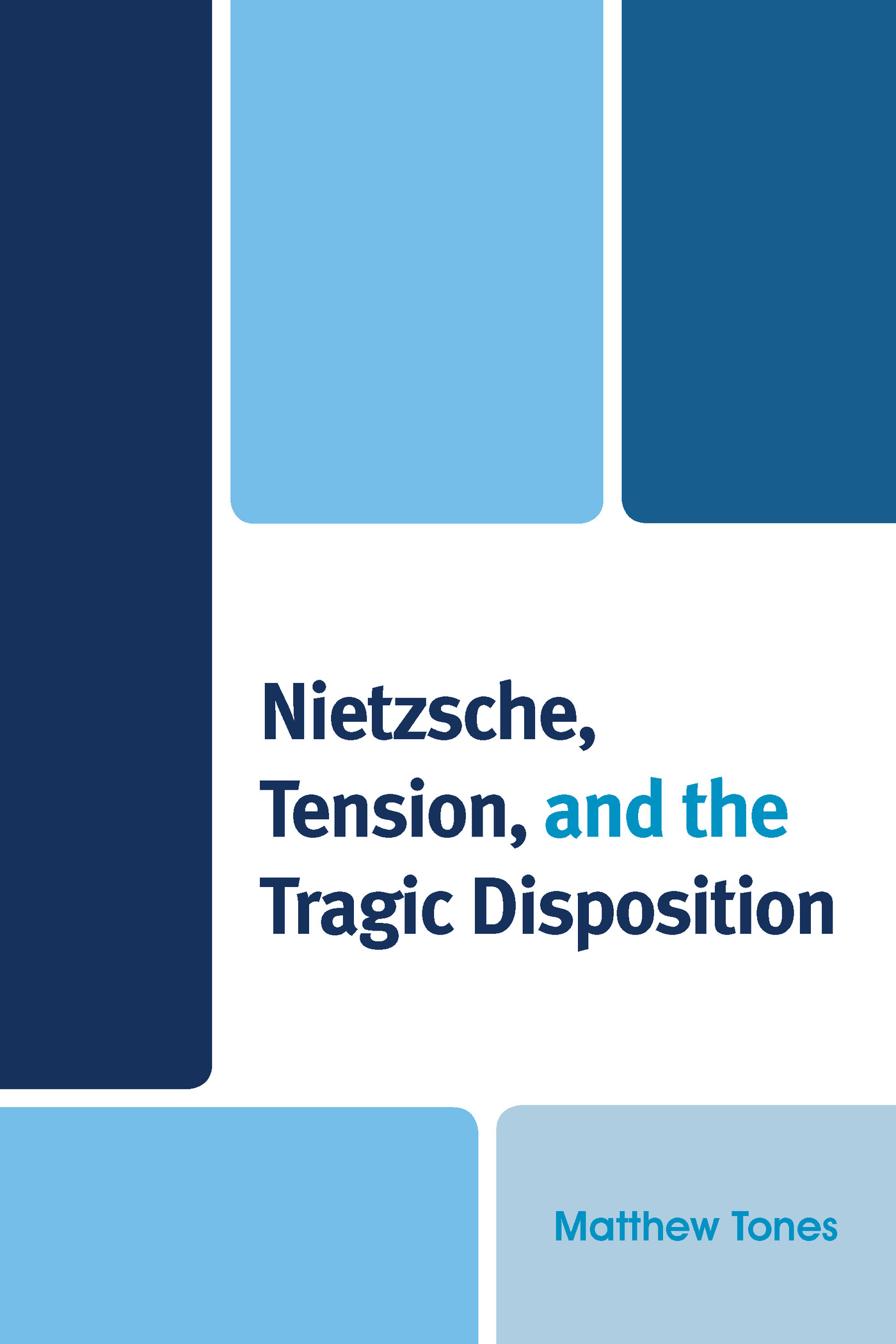Nietzsche, Tension, and the
Tragic Disposition
Nietzsche, Tension, and the
Tragic Disposition
Matthew Tones
LEXINGTON BOOKS
Lanham Boulder New York London
Published by Lexington Books
An imprint of The Rowman & Littlefield Publishing Group, Inc.
4501 Forbes Boulevard, Suite 200, Lanham, Maryland 20706
www.rowman.com
16 Carlisle Street, London W1D 3BT, United Kingdom
Copyright 2014 by Lexington Books
All rights reserved. No part of this book may be reproduced in any form or by any electronic or mechanical means, including information storage and retrieval systems, without written permission from the publisher, except by a reviewer who may quote passages in a review.
British Library Cataloguing in Publication Information Available
Library of Congress Cataloging-in-Publication Data
Tones, Matthew.
Nietzsche, tension, and the tragic disposition / Matthew Tones.
p. cm.
Includes bibliographical references and index.
ISBN 978-0-7391-8991-7 (cloth : alk. paper)ISBN 978-0-7391-8992-4 (electronic) 1. Nietzsche, Friedrich Wilhelm, 1844-1900. I. Title.
B3317.T63 2014
193dc23
2014021879
 TM The paper used in this publication meets the minimum requirements of American National Standard for Information Sciences Permanence of Paper for Printed Library Materials, ANSI/NISO Z39.48-1992.
TM The paper used in this publication meets the minimum requirements of American National Standard for Information Sciences Permanence of Paper for Printed Library Materials, ANSI/NISO Z39.48-1992.
Printed in the United States of America
To Shalinher unwavering support made this project possible.
Note on Abbreviations
I have largely adopted the format of referencing outlined by the Nietzsche Circle. This can be found at: http://www.nietzschecircle.com/nc_contributor_guidelines.html
AC - The Antichrist
BGE - Beyond Good and Evil
BT - The Birth of Tragedy
CW - The Case of Wagner
D - Daybreak / Dawn
EH - Ecce Homo (Wise, Clever, Books, Destiny)
ENB - The Early Notebooks
GM - On the Genealogy of Morality
GS - The Gay Science / Joyful Wisdom
HC - Homers Contest
HH - Human, All Too Human
HL - On the Uses and Disadvantages of History for Life
NCW - Nietzsche contra Wagner
PPP - Pre-Platonic Philosophers
PTA - Philosophy in the Tragic Age of the Greeks
RWB - Richard Wagner in Bayreuth
SE - Schopenhauer as Educator
TI - Twilight of the Idols (Maxims, Socrates, Reason, World, Morality, Errors, Improvers, Germans, Skirmishes, Ancients, Hammer)
TL - On the Truth and Lies in a non-moral Sense
UM - Untimely Meditations
WP - The Will to Power
NB - Writings from the Late Notebooks
Z - Thus Spoke Zarathustra in text referencing will refer to part number and chapter number (e.g., Z 1:23).
With regard to the use of the unpublished works (WP, ENB, NB), I have followed guidelines detailed by Daniel Breazeale (Nietzsche 1979): references are indicated by the above citation, where there is a conflict; the published material takes precedence, and where appropriate, notebook material will be supplemented with published work.
Introduction
And I feel it in this way! There is only One hope and One guarantee for the future of mankind: it is that the tragic disposition should not die out. An unprecedented cry of despair would resound over the earth, were men to lose it completely; and there is no more rapturous joy than to know That which we knowthat the tragic idea has again been born into the world. (UM4:4)
Nietzsches earliest work on the Greeks reveals a particularly optimistic understanding of the relationship between culture and phusis that gave birth to the formation of Greek tragic culture. However, as his work matured he came to the realisation that this intimate relationship the Greeks enjoyed between culture and phusis was irreparably damaged and had essentially been lost, along with the last vestiges of the Greek tragic world. Nietzsches analysis of this relationship would form the foundation of his own understanding of the Greek tragic disposition that he examined in great detail in The Birth of Tragedy. It is these themes he developed in this early period that would have a lasting influence on his work as a whole.
The current work will pursue one notion, prevalent in Nietzsches early work, which understands the ontological structure of the tragic disposition as a process that is wholly within becoming, one that creates from an abundance of forces. The tragic disposition displays a desire for eternity that runs counter to the verity that within this becoming is a process that ensures all creation is fated to destruction, a realization that produces an increasing tension. Thus, the ontological is to be understood as a cyclical process within becoming, a process of creation, destruction, creation, ad infinitum. This ontological structure resulted in the development of a particular disposition, possessed by the Greeks and epitomized in their creative instances of nobility captured largely in Greek tragedy. This work will examine this ontological process, and focus on the tension between the nobles desire for permanence and the knowledge of their inevitable destruction. While this ontological idea was prevalent in Nietzsches early work on the Greeks, his mature writing tends to emphasise the foreignness of Greek culture, and questions about the tragic disposition shrink to the background. Hence, it invites the question, what happened to the Greek tragic disposition in Nietzsches mature thought? The concept reappears in various points of tension that emerge in his work on the noble journey to reconnect with a nature that is lost in his own time, and it is the tragic disposition that is integral to Nietzsche's developing notion of nobility.
The persistent question concerning Nietzsches relationship to the Greeks and what role and influence their thought plays on his thought will be expanded upon to reveal a concern retained throughout his work and in Beyond Good and Evil manifests itself in the task to translate man back into nature (BGE230). Indeed, this desire to reconnect with nature reveals Nietzsches hope for the future, and is manifested in an ancient, yet new, task made possible by a magnificent tension of the spirit such as has never existed on earth before: with so tense a bow one can now shoot for the most distant targets (BGE preface).
Of central importance for this task will be the role of Greek nature, or phusis, and its ontological function for a re-emergence of nobility. Generally translated as nature, and addressed extensively by Plato and Aristotle, it is, however, from the pre-Socratics that Nietzsche's use of the term is derived. Phusis was a subject he explored extensively in his earliest unpublished writings, specifically in Anaximander and Heraclitus, and from here he acquired an understanding of a formative primal matter at the root of existence. Hence, of concern will be how Nietzsche understands and uses Greek phusis to reinvent notions of nobility consistent with a tragic disposition.
The popular trend in Nietzsche scholarship for questions of
Next page
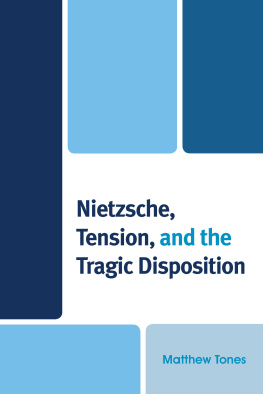
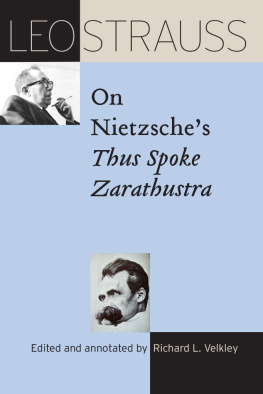


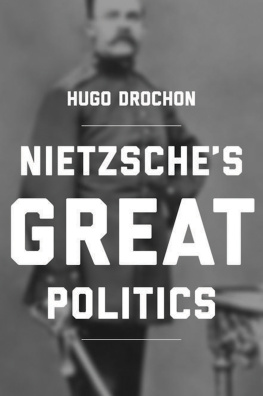

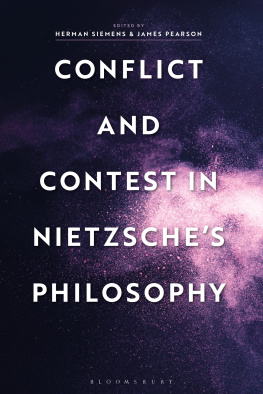
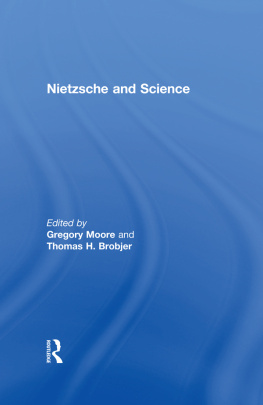
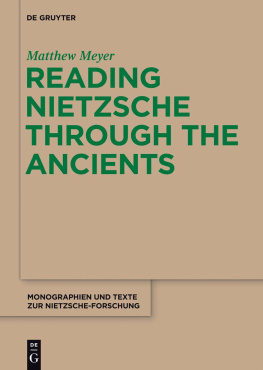
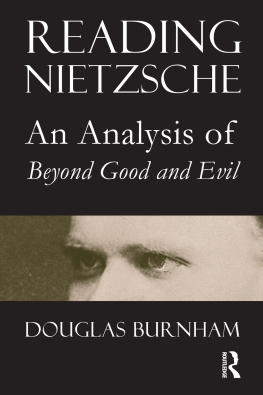
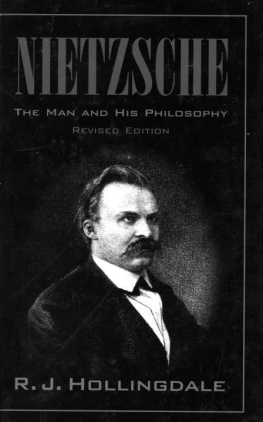
 TM The paper used in this publication meets the minimum requirements of American National Standard for Information Sciences Permanence of Paper for Printed Library Materials, ANSI/NISO Z39.48-1992.
TM The paper used in this publication meets the minimum requirements of American National Standard for Information Sciences Permanence of Paper for Printed Library Materials, ANSI/NISO Z39.48-1992.